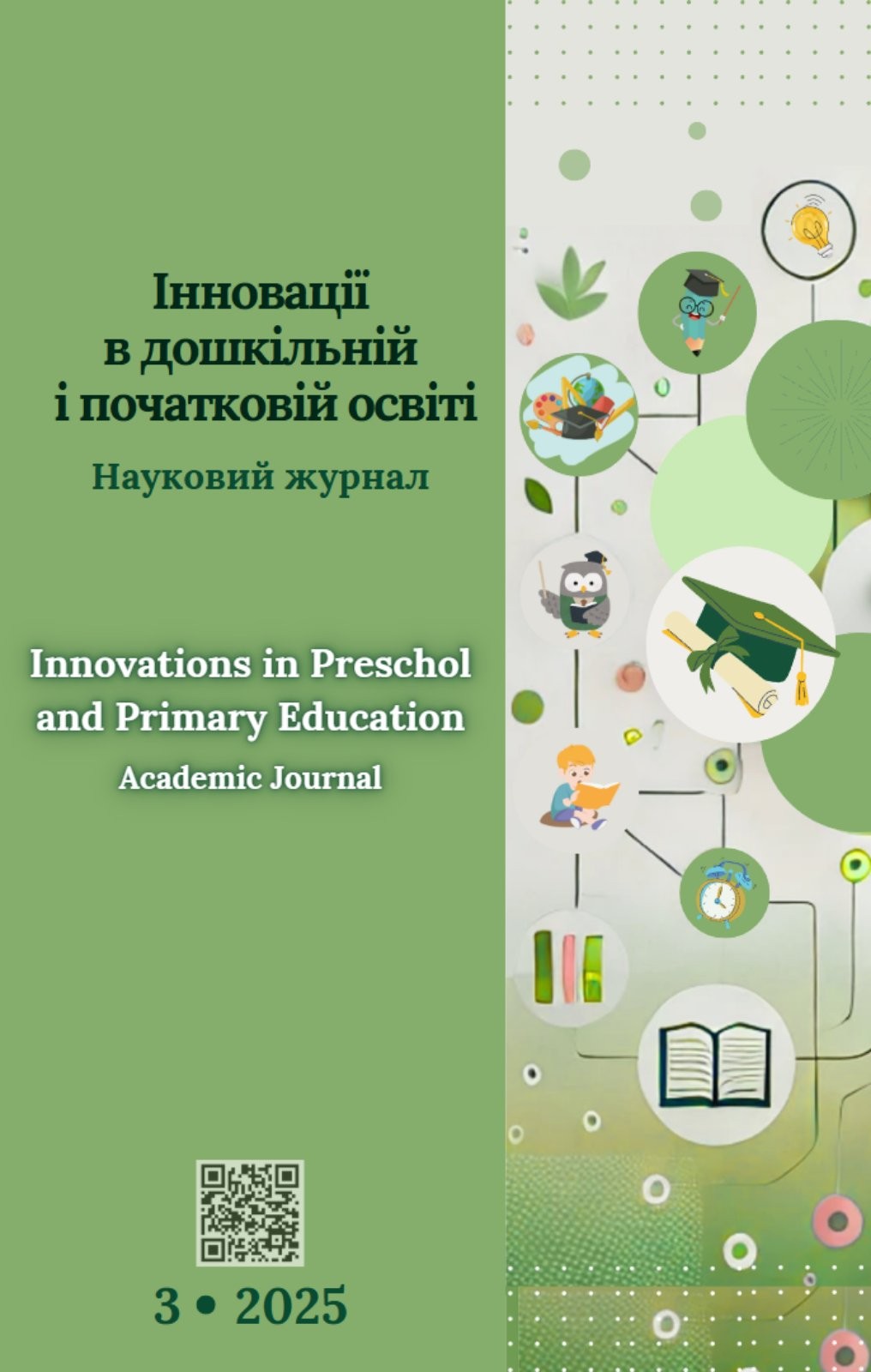Students of the alpha generation: specificity of learning in school and grade conditions
Keywords:
Alpha generation, educational interaction, clip thinking, interactive learningAbstract
The article raises the problem of organizing the education of modern students of primary school age as representatives of the Alpha generation. Scientific research on the outlined problem is analyzed, the importance of understanding the essence and educational needs of the new generation of students is emphasized. A general characteristic of modern students is given. The distinctive features of younger schoolchildren as representatives of the first digital generation with their inherent clip thinking are outlined. It is noted that clip thinking is a new phenomenon of modern society. It is characterized by fragmentation, unsystematicity, speed and superficiality of information perception. It is emphasized that the new generation requires a special approach to organizing education at the initial stages. The key habits of the Alpha generation to study are revealed (preference for interactive and exciting learning, visual and multimedia learning parameters, reduced attention span, independent and self-directed learning, organization of cooperative learning, instant feedback and satisfaction, practical learning and experiential learning).Adaptation to the learning habits of new generation students is becoming a priority task of the modern education system. Modern approaches to organizing the education of younger schoolchildren – representatives of the Alpha generation – and minimizing the negative manifestations of their clip thinking are outlined. Recommendations are given to teachers for working with such students. The need for involvement and motivation, thoughtful implementation of technologies, personalized learning trajectories, the use of short interactive lessons, promotion of creativity and critical thinking is shown. The need to use tools and methods that correspond to the learning style of representatives of the Alpha generation (gamified learning, digital collaboration, multimedia content) is emphasized.References
1. Vasyliuk, A., Liubchak, L. & Kit, H. (2024). Suchasni pidkhody do orhanizatsii partnerskoi vzaiemodii mizh uchniamy pochatkovoi shkoly [Modern approaches to organizing partnership interaction between primary school students]. Innovatsii v doshkilnii i pochatkovii osviti – Innovations in preschool and primary education, 1, 7-16. Retrieved from: https://doi.org/10.31652/3041-2439-2024-1-1 [in Ukrainian].
2. Vasyliuk, A. & Tanas, M. (2013). Pedahohichnyi slovnyk-leksykon (ukrainsko-anhlo-polskyi) [Pedagogical dictionary-lexicon (Ukrainian-English-Polish)]. Kyiv-Varshava. [in Ukrainian].
3. Pavelchuk, M. (2024). Personalizatsiia navchannia zdobuvachiv profilnoi serednoi osvity yak predstavnykiv pokolinnia Alfa: urakhuvannia indyvidualno-psykholohichnykh osoblyvostei [Personalization of education of students of specialized secondary education as representatives of the Alpha generation: taking into account individual psychological characteristics]. Ukrainskyi pedahohichnyi zhurnal – Ukrainian Pedagogical Journal, 3, 79-86. [in Ukrainian].
4. Sadovnikov, O. & Skakovska, D. Osoblyvosti pokolinnia Alfa v Ukraini [Peculiarities of the Alpha generation in Ukraine]. Retrieved from: https://www.researchgate.net/publication/380580797_osoblivosti_pokolinna_alfa_v_ukraini#fullTextFileContent [in Ukrainian].
5. Vasiutina, T., Ishchenko, L., Kit, H., Bondar,Y. & Khilya, A. (2024). Algorithm for implementing quest technologies in research work with preschool and primary school children. Environment. Technology. Resources, 2, 503-507. Retrieved from: https://journals.rta.lv/index.php/ETR/article/view/8089 [in Latvia].
6. Buckley, D. & Wilson, L. (2006). The Personalization by Pieces Framework: a Framework for the Incremental Transformation of Pedagogy Towards Greater Learner Empowerment in Schools. Cambridge: CEA Publishing. [in Great Britain].
7. Educators And Generation Alpha: Adapting To The Future Of Learning. Holistique training. Retrieved from: https:// https://holistiquetraining.com/en/news/education [in Great Britain].
8. McCrindle, M., Fell, A. & Buckerfield, S. (2021). Generation Alpha: Understanding Our Children and Helping Them Thrive.
9. Moles, A. A. (2019). Sociodynamique de la culture. De Gruyter Mouton. Retrieved from: https://doi.org./10. 1515/9783111672403
10. Sivachenko, I., Demchenko, O., Vakaliuk, I., Valentieva, T. & Kit, H. (2022). Problems and Perspectives of Pedagogical Research in the Context of Digitalization. International Journal of Computer Science and Network Security, 22, 6, 652-657. Retrieved from: https://doi.org/10.22937/IJCSNS.2022.22.6.81

